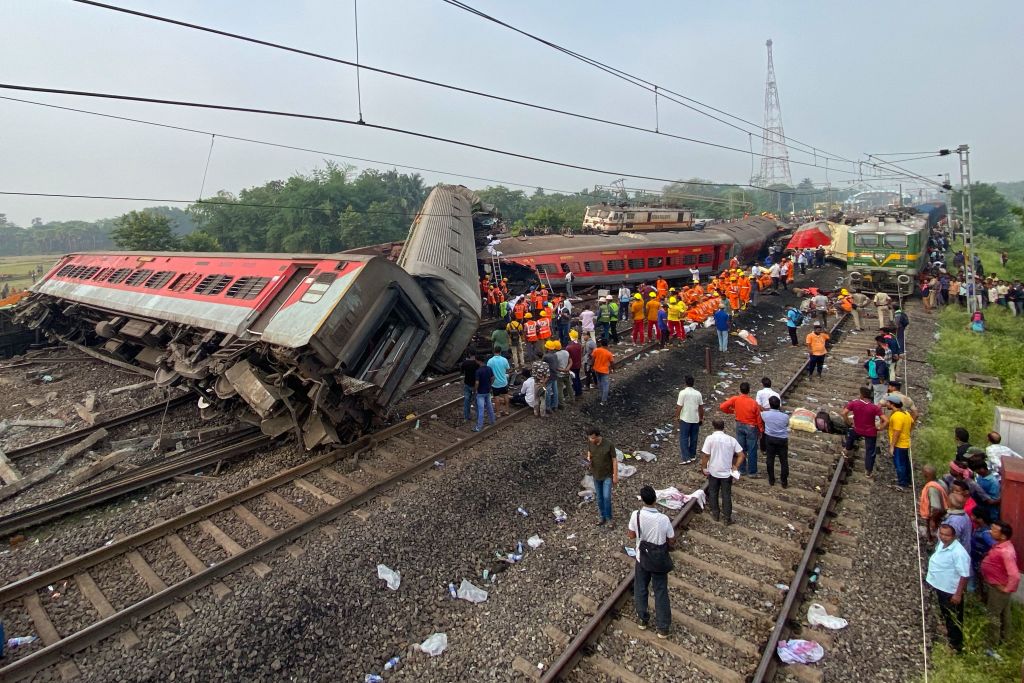- Wednesday, April 23, 2025
The three arrested, including two engineers, were charged with culpable homicide not amounting to murder as “they had knowledge” that their actions would lead to such a tragedy but not the ‘intent’.

By: Shubham Ghosh
INDIA’S elite investigative agency Central Bureau of Investigation (CBI) on Friday (7) arrested three employees of the Indian Railways in connection with the multiple train crash that took place in Balasore in the eastern state of Odisha on June 2.
More than 290 people were killed in the accident while over 1,000 people were injured. Prime minister Narendra Modi visited the spot along with railways minister Ashwini Vaishnaw and the railways had to work on a war-footing to clear up the massive pile-up on one of the busiest routes that connect eastern and southern India.
The CBI, which took over the probe a few days after the disaster, was looking into the possibility of a criminal conspiracy. The three arrested, including two engineers, were charged with culpable homicide not amounting to murder as “they had knowledge” that their actions would lead to such a tragedy but not the ‘intent’ and destruction of evidence.
The three were identified as senior section engineer (signal) Arun Kumar Mahanta, section engineer Mohammed Amir Khan and technician Pappu Khan.
The probe agency said the accused have been arrested under sections 304 and 201 of the Indian Penal Code for “their action which led to the incident” without describing what exactly they did, Hindustan Times reported.
The CBI, which carried out the investigation for a month, said two stringent sections related to culpable homicide and destruction of evidence have also been added.
The arrest took place days after the Commissioner of Railway Safety (CRS) submitted its report on the accident to the railway board. The probe spoke about faulty signalling that led to the Chennai-bound Coromandel Express entering a loop line where a goods train was stationary.
The CRS reportedly spoke about negligence on the part of a few grounds officials who did not take care of adequate safety procedures of inspection, particularly after changes were brought in the design due to safety concerns some years ago, NDTV reported.
The CRS had reportedly highlighted negligence on the part of a few ground officials who did not follow adequate safety procedures of inspection, particularly after changes were made in the design due to safety concerns three years ago.
The report said remedial actions could have been taken by the staff if “repeated unusual behaviour” of switches connecting two parallel tracks were reported to them by the station manager of Bahanaga Bazar, where the accident took place.
Recently, Archana Joshi, general manager of South Eastern Railway, was removed and Anil Kumar Mishra took over.